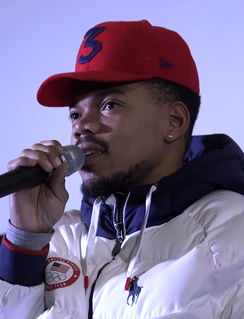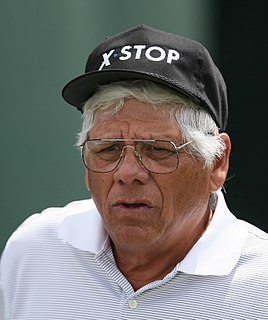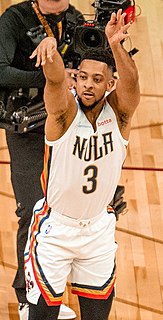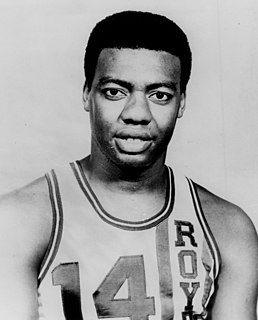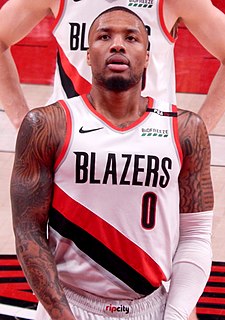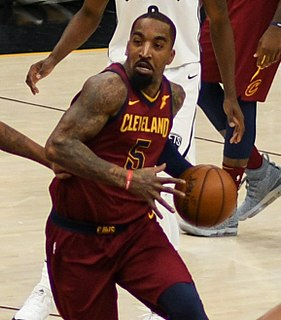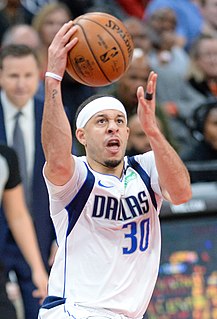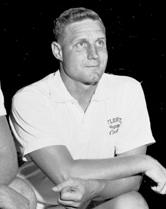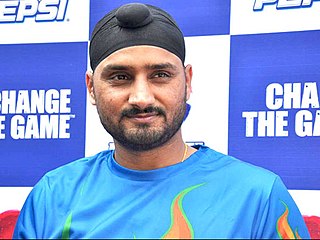A Quote by Chance The Rapper
We've been conditioned to understand music as a field where you get discovered, and you're always trying to find that end. So 'my shot' is speaking of a variety of shots. When you're a rapper, you look at every shot as the one you're supposed to take.
Related Quotes
The time to hurry is in between shots. It's not over the shot. It's timing how people walk. You have to add that to the equation. If you've got somebody walking slow and they get up to the shot and take their 20 seconds, what's the aggregate time for them to hit that shot in between shots? That's what really matters. It's not the shot at hand.
Every shot feels like the first shot of the day. If I'm on the range hitting shot after shot, I can hit them just as good as I did when I was 30. But out on the course, your body changes between shots. You get out of the cart, and you've got this 170-yard 5-iron over a bunker, and it goes about 138.
It's been a part of my game for life. It's tougher to finish in the lane so you've got to find different areas to score efficiently and the mid-range contested shot is a shot a lot of teams will live with. And it's a shot I'm willing to live with as well just because I've gotten so many shots at it and I'm comfortable with it.
You look at the inner cities and you see bad education, no jobs, no safety. You walk to the grocery store with your child and you get shot. You walk outside to look and see what's happening, and you get shot. In Chicago 3,000 people have been shot since January 1st. I am not going to let that happen.
I had a rope around my waist, and the rope was attached into the helicopter in case I fell off. And the shot was a shot that began with Kim Novak going out of a house and getting into a bus. Then it was supposed to go over the countryside and find a freight train on which Bill Holden was standing. And then after seeing a good look at the freight train, the camera was supposed to move up into the sky for the end credits.
What I try to do is find a weakness in my opponent. A way that I can hit you. One good, clean shot. Try to time it. If I can get it and the shot is there, if I find that shot in the first round and they go down, they go down. I'm prepared for anything, not just to get first round knockouts. If they're there, I'm not gonna resist to take them.
My true role is to get actors to understand what the camera is doing and what my intent is so they don't waste their good stuff on over-the-shoulder shots and wide shots. They need to know when we're going in to get something important, so they know to really go for it. No human being can give you 1,000 percent on every single take or shot, so you need to let them know what you're heading for. It's important that the actors know they're being looked after and being recorded in a way so they can do their best.
For me, it's just finding ways to create shots. I feel like if I got a shot off, it has a good chance of going in. So it's finding ways of creating different shots. Being smart. I watch film a lot, and different tricks that I can do to get my shot off the ball and creating ways to get shots off of pick-and-rolls or one-on-one situations like that.
